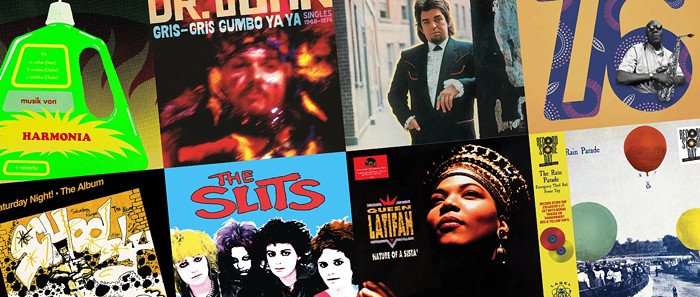Mos Def responds to his many critics on Soundbombing II's second track, "B-Boy Document 99." Why a great rap stylist like Mos Def would be assailed at all--never mind heckled with such uniformity in the underground press (i.e., bad magazines and chat rooms) that he could address all naysayers in a single verse--is somewhat mysterious, but it's in part due to a familiar pop phenomenon. Mos Def, fluid and tuneful on the mic, often humorous, and unusually comfortable when interviewed by herbish white reporters, is the first star of the indie-rap movement to enjoy mainstream acclaim. So of course he's gonna be called a sell-out.
But the sniping Mos Def endures is even more poisonous than that "we made you, we own you" party line. One critic wrote him off as that MC "who gets white kids so open." Vibe called Black Star hypocrites because they claim to bring new music, yet employ samples. Spin's review of Soundbombing II doesn't even mention Mos Def, even though he appears on an album-high three tracks (ripping the chorus of Medina Green's "Crosstown Beef" with black-humored jubilation that salutes and updates the spirit of Hendrix), as befits the label's star attraction. He gets it from all sides.
The English magazine Hip-Hop dubbed Mos Def the Most Important Person in Hiphop, which indicates how local most of this slagging is. Mos is a brainy guy, kinda cuddly looking and a very emotionally giving, charismatic performer. People who are familiar with his work feel like they know him personally and are, I think, a bit embarrassed about being helplessly attracted. The pop-eschewing hiphop underground partakes in more than a touch of post-Dylan-rock's distanced cool.
Mos Def shows that that's not the best method of challenging hip-pop's reign of shallowness. He's a dedicated, unapologetic fan of old-school, sampling favorite lines in ways that communicate their original impact and enduring meanings. But with never less than two feet in late-'90s Brooklyn, Mos balances nostalgia with a willingness to put himself in the middle of ongoing conflicts. Whether rapping about drive-bys in "Crosstown Beef" or sticks 'n' stones in "B-Boy Document," he's taking sides and making points.
Roots in b-boy history, likewise, provide a counterweight to Mos Def's courageous mouthiness. Together they make for a spirited dissent from what might be called the indie-rock model: the belief that the underground should affect an anti-commercial, intellectual stance to confront soulless major-label kiddie pop. Demonstrating the extent to which he refuses to pander to arty white students (who Mos, educated at a Manhattan performing arts high school, undoubtedly understands), Mos Def on the mic personifies all that's wrong with that theory applied to hiphop. His lines are catchy and bright because hiphop has always been crassly entertaining, never refined, nor disaffected, nor subtle. His name is punny "Mos Def" because true hiphop's never too cool to be clever. And he's not an intellectual, because he doesn't see himself as part of an abstracted movement so much as one smart guy shooting his ideas off in rhyme. Which, when done in an entertaining way, was and is more than enough for any MC. If he wasn't doing it damn-near alone, it'd be easy to see that Mos Def's act is in accordance with a rich tradition.
I can't compact the potency of all of the above into a single verse, but you can hear it on "B-Boy Document." No wonder Mos Def gets it from all sides. He's a rebel with a better plan than the rebel authorities. But he's right. You can't effectively oppose the mainstream unless you draw from a deeper well than it does.


















